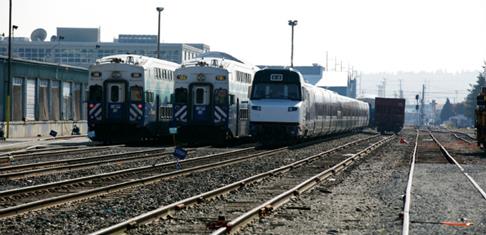On March 27th, 2013, a train traveling through western Minnesota derailed and leaked 30,000 of crude. On July 6th 2013, an unattended 74 car freight train in Lac-Megantic, Quebec moving Bakken crude oil ran away and derailed. This derailment resulted in an explosion and subsequent fire that caused the death of 47 people.
On December 30th 2013, a derailment occurred near the town of Casselton, N.D.. According to a recently released National Transportation Safety Board (NTSB) report, 18 tanker cars were punctured, 400,000 gallons of crude oil was ignited. 1,400 people from the surrounding area were temporarily evacuated while first responders dealt with the fires.
On January 7th, 2014, crude oil and propane being shipped by train ignited near Plaster Rock, New Brunswick. 150 residents needed to be evacuated. Luckily there were no fatalities or injuries.
According to the Pipeline and Hazardous Materials Safety Administration (part of the Department of Transportation), oil extracted from the Bakken (a vast rock formation underneath North Dakota and Montana) “may be more flammable than traditional heavy crude oil.”
Large quantities of oil move through our state every day. New proposals could dramatically increase the amount of oil being shipped through Washington by 800,000 barrels a day. The Tacoma News Tribune recently reported that oil tanker traffic could increase nearly seven fold after Kinder Morgan Canada filed with Canadian regulators to expand its pipeline.
With the recent string of accidents regarding some oil shipments, what is being done to ensure safe transportation of these materials through our state? It’s important to note that state agencies have no regulatory authority over what travels through their state on rail lines.
Representative Jessyn Farrell (D-46th Legislative District) has introduced legislation in the House this week to begin addressing the issue. The bill will require transparency from oil and rail companies in regards to their shipments through the state. In an interview with KUOW Farrell said “Fundamentally, communities have a right to know when a substance that potentially is very dangerous is coming through the community.”
A little transparency could help to mitigate damage from an unfortunate accident helping Washington preserve its evergreen legacy. We will carefully watch the progress of this timely legislation.
